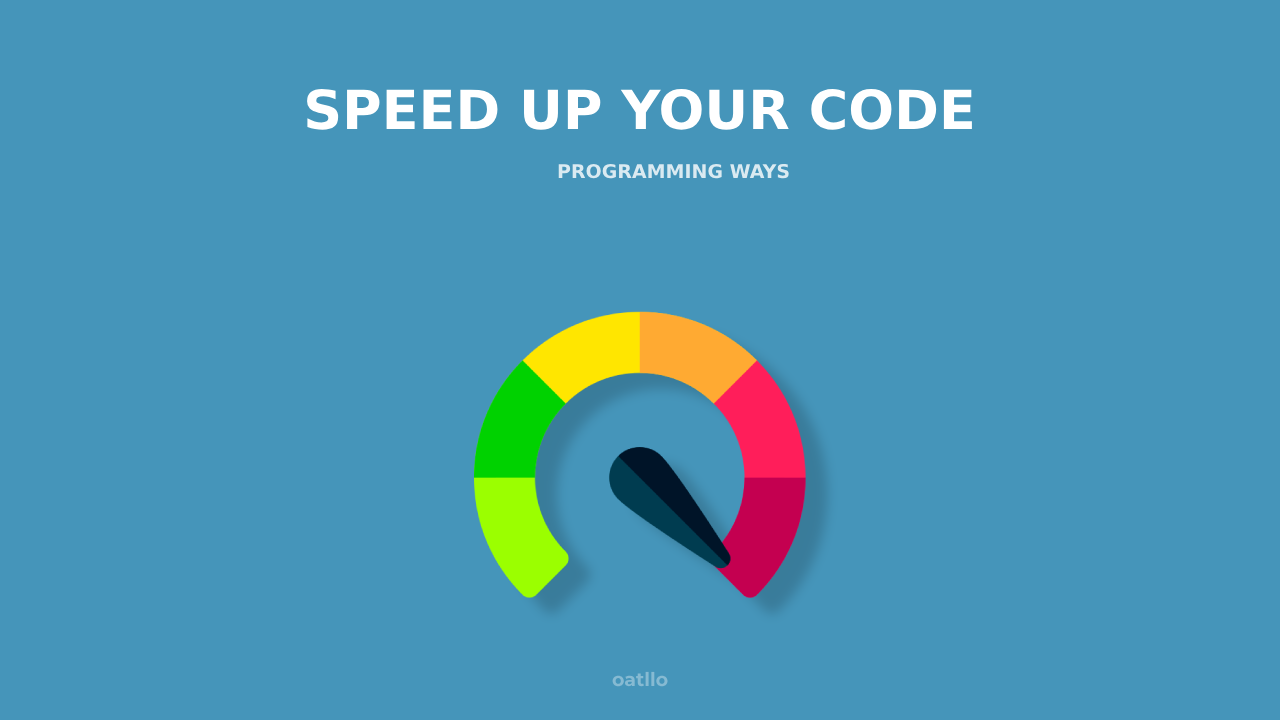Introduction to PHP and Its Performance
In today’s world, where the internet is nothing but a realm of digital infinities, and websites serve as our virtual business cards, it is worth considering a key element that drives them. We are talking about PHP - one of the most popular programming languages that has effectively ruled the world of dynamic websites for years. Have you ever wondered why so many developers base their services on this language? The answer lies in its flexibility, simplicity, and incredible ability to integrate with various databases, making PHP seemingly perfect for building interactive web applications.
However, like any programming language, PHP comes with certain pitfalls that can undermine our efforts to achieve peak performance. Imagine a situation where your site loads slower than a turtle on a stroll - frustrating, right? That’s why performance optimization of PHP code is a crucial topic that deserves detailed attention. And this is where we step in to solve these issues and help you navigate the maze of difficulties that this language brings.
Optimizing the performance of PHP applications is not just a luxury, but a necessity. It seems that in a world where everything happens at lightning speed, users’ patience is non-existent. Are you wondering what makes the code run slowly? It could be:
- poor memory management,
- slow database queries,
- inefficient algorithms.
These problems can cause even the best-designed application to fail to deliver the expected results. So, how do we tackle this?
In this article, we will highlight various aspects, that you should consider while writing PHP code. We will talk about things you should avoid to not fall into performance traps, as well as provide tips on how to speed up your code to run smoother than ever before. We focus on practical advice that you can implement right away, rather than diving into theoretical discussions. It’s like fueling up your car before a long journey - because who wants to linger on the roadside when you can move forward?
So, get ready for a surprising journey through the world of PHP, where we will show you how to optimize your code and avoid common mistakes that can slow down even the best-written applications. It’s time to uncover the secrets of effective programming and make your projects thrive at full speed!
Welcome to the fascinating world of PHP, where just a few careless steps can turn your unique projects into slow and inefficient machines. Let’s begin our journey towards what to avoid if you want your software to be as fast as the literary thoughts of Ziemowit Szczerek writing about Poles. Let’s discover what lurks in the shadows of the code and how to effectively push them away. Sometimes thinking that mistakes don’t matter is like claiming that the water in the sea isn’t cold – either way, you will react in some way!
At the forefront are bad programming practices, which can be compared to sticking stickers on a car instead of washing the bodywork. Instead of creating something with conviction, we often provide ourselves with “quick fixes” that, instead of helping, will soon return to us like uninvited guests at a family event. Forget about comments, chaotic variable names, or skipping code formatting; all of this blocks creative thinking, and an excess of “insight” leads nowhere.
In every code, clarity should be pursued – not only for yourself but also for those who may peek at it in the future. As they say, clean code is happy code!
Next, we face a major challenge: inefficient database queries. This can be compared to trying to find a needle in a haystack. Why? Because chaotic queries can consume a disproportionate amount of resources, and ultimately, time. For example, queries that load all records instead of striving for what is necessary will indeed work, but only until the time comes for a major update or a sudden spike in calls. So is it worth it? Definitely not.
It’s worth noting that using indexes in the database is the key to success. An index is like a map - it allows for quick localization of what we are looking for without sifting through every cell. The architecture of the database can save your project and prevent it from sinking.
Employing practices such as using “LIMIT” in queries instead of searching all records can significantly speed up your applications.
Let’s not forget about excessive memory usage. This is reminiscent of having too many guests at a party – everyone wants to be the center of attention, and ultimately, you stop seeing who really matters. Sometimes a few simple tips are enough to manage memory, such as avoiding the creation of large arrays that burden the server. Using local variables instead of global ones or closing loops before reloading the entire array are ways straight from a literary masterpiece to care for resources, even remotely.
Finally, let’s look at inefficient algorithms. Using a racing analogy, bad algorithms are like a car that has a fantastic engine but moves slowly because it gets stuck in every narrow alley 🔄. Optimizing an algorithm is a key element in improving the performance of the entire code.
Choosing the simplest method with the least time complexity can pay off in the future. Therefore, remember that a step back sometimes means two steps forward. It’s worth analyzing, testing, and implementing older techniques that could make your applications as light as a feather rather than a crushing weight!
Don’t be uncritical of your own skills! Optimization and attention to every detail of the code is not just a whim; it is a necessary step to unleash the full potential of PHP.
As they say, it’s not only the choice of the right components, but also their proper use that allows the site to grow into the shape you dreamed of. As a result, you will realize that good code is not just functionality but an echo of artistic vision in the digital world.
In the world of PHP, where every second counts, database optimization is a crucial element that is often too easily overlooked.
Imagine your application running like a well-oiled machine. Every gear works in harmony with others, generating a flow of data with unprecedented smoothness.
Now imagine that one of those gears is dipped in honey – that’s how a database query operates without proper indexes or with excessive operations.
Is there anything worse than the frustration of users waiting for data like a late train? The answer is: no!
So let’s take a look at how we can avoid performance issues and create databases that perform with incredible efficiency.
To start, a well-designed database is fundamental. Having the right structure is like a solid foundation under a house – everything has its place,
and you don’t have to worry about something collapsing at the least expected moment. If the data is organized thoughtfully, you reduce the risk of necessary operations that can significantly burden the database server.
That’s why it’s worth investing time in designing table schemas and the relationships between them. A good practice is a practical approach – before deploying a new structure,
test it on a small sample of data.
Next, using indexes is key to faster access to data. Properly added indexes are like road signs on the information highway;
they direct events to the appropriate place, speeding up access time to data. Without their use, the engine of your application will have to spend time searching through the entire database,
which can be compared to finding a needle in a haystack. The application may slow down like congested traffic during rush hour.
That’s why adding indexes to the appropriate columns of tables is essential. Just remember, that having too many indexes can also lead to slowdowns – like swaying on a swing,
where every movement requires effort.
What to say about excessive queries? Here we show how to share our ideas like a good friend shares a chocolate bar.
When crafting queries, avoid duplicating effects that run the same operations multiple times.
The fewer queries to the database, the faster the application will find the right data.
An example of this could be thoughtful SQL queries that combine data whenever possible.
Here’s an example of an efficient query:
// Example of an efficient SQL query
$query = "
SELECT users.name, COUNT(orders.id) as order_count
FROM users
LEFT JOIN orders ON users.id = orders.user_id
GROUP BY users.id
ORDER BY order_count DESC
";
// Execute the query
$result = mysqli_query($connection, $query);
In this case, instead of executing queries for each user, we gather data in one query,
which significantly increases the operation's performance. Speaking of best practices,
using parameters in queries or employing prepared statements is also a good method to minimize the risk of SQL injection attacks and enhance performance.
Moreover, it’s always worthwhile to improve the code and utilize caching responses, which can reduce the number of queries to the backend.
Just like in the kitchen, good organization of ingredients makes cooking a pleasure.
As you can see, taking a few steps towards database optimization, can save a lot of time and resources.
A well-structured approach will invigorate the application, like a perfect cup of coffee in the morning – stimulating the mind and supporting optimal performance.
Ways to Speed Up PHP Code
Every PHP developer, regardless of their skill level, will sooner or later face the challenge of optimizing their code. It can be a really enjoyable experience, but also frustrating when your applications do not perform as quickly as you would like. Why? Because no one likes to wait! At least that’s what research says – internet users' impatience grows with every passing second. If your site loads slowly, there’s a significant risk that you may lose a user who could have been captivated by your excellent content.
So, what to do? Whether you're designing a complex system or a simple website, there are techniques that can significantly improve your code's performance. It's worth considering them, especially since their implementation can turn out to be easier than you think. Let's start with caching, which is like a cookie – the faster it can be found, the sooner it can be enjoyed. Instead of generating the same data multiple times and wasting valuable time, it’s better to store it. An example? Using Memcached or APCu allows you to store variables in memory, which greatly speeds up their availability. And that's not the end! Let’s dig deeper into this strategy.
Another clever approach is choosing the right data structures. Appropriate structures can save you from the nightmare of searching through endless arrays. Instead, consider using smarter solutions, such as binary trees, which allow for quick searching and adding of data. Think of it like a well-organized library, where communicating with the cognizant shelf makes finding your favorite book a real pleasure.
Let's not forget about data compression. Yes, you read that right – compression. You can save on loading time by transforming your data into smaller packages. Tools like gzip prove to be handy, and their implementation in PHP can be childishly simple. By reducing the size of the transmitted information, you gain time and efficiency. See – easy, right? Now, let me present one more often overlooked aspect that can elevate your PHP skills to a different level.
Algorithm optimization is the key to success, especially when working with large data sets. It's not enough to just do something that works. You need to do what works quickly. A well-planned algorithm is one that minimizes the required operations. Think of it like preparing a complex dish. If you do everything according to plan, you will save a lot of time and avoid standing in the kitchen endlessly. Make sure that the complex operations are efficient, and your applications will be lighter and more agile.
An example? Instead of using a loop that iterates through large data sets, consider using functions like array_map() or array_filter(). They can work much faster, as PHP will operate on the data simultaneously rather than sequentially.
// Example of using array_map for optimization
$numbers = [1, 2, 3, 4];
$squared = array_map(function($number) {
return $number * $number; // Squaring the numbers
}, $numbers);
All these techniques create a complementary whole, aimed at one effect – speed. Support them with efficient practices and create code that not only works but does so with grace and lightness, like a ballerina dancing on stage.
In the world of PHP programming, profiling and performance monitoring are crucial to ensure that our code runs s smoothly and efficiently. Imagine walking into a chaotic kitchen where every chef does whatever they want. Dishes get burned, ingredients are poorly mixed, and as a result, customers wait forever for their orders. Now, let’s consider what would happen if we introduced monitoring to this chaos? Suddenly, the chefs start cooperating, and dishes arrive right on time. This is exactly how profiling and performance monitoring transform our project into a work of art that operates smoothly and without interruptions.
One of the first tools you should have on hand is Xdebug. It's simply indispensable! Xdebug is a harbinger of professionalism in our code that allows us to examine what is happening inside the application. With it, we not only gain access to typically unavailable information, but we can also track memory usage, function execution times, and perform debugging. How do we do this? Just add the appropriate configuration to our php.ini file and then enable the necessary options. And what if we want to see how our application performs in practice? Using Xdebug, we can easily analyze call paths and track which parts of the code are causing the most slowdown.
Why is profiling so important?
Because our code is nothing more than a machine — every bottleneck is a gear that slows down the entire mechanism. So, with a tool like Xdebug, we can catch those bottlenecks, look at the statistics, and take corrective action. Let’s remember that code analysis is nothing more than a selection process: we check what works and what needs improvement. Without analyzing the outcome, we can get stuck in an invisible trap of problems.
Another tool to consider
Another noteworthy tool is Blackfire. It looks like a magic wand that can work wonders in our applications. Blackfire offers a rich set of features that allow for in-depth profiling and performance measurement. Thanks to it, we can analyze our applications in real-world conditions, not just in test labs. It's like an #photo from a local party that shows our roundness — it’s different from a portrait photo, which is always perfect.
By using Blackfire, we can trace not only the execution of functions but also see how our application actually handles the load. This tool provides visual representations that show how our applications perform at scale — it’s perfect for identifying I/O bottlenecks and analyzing database performance. Sounds exciting, right? But the most important thing is not to get lost in a thicket of information. Identifying the finer details, these seemingly small missteps, can lead to significant performance losses.
Let me conclude with something I always tell my students: Profiling is not an optional step in programming. It’s something that should be done regardless of whether you are a beginner or an experienced developer. Remember, proper optimization is a long-term investment.
When we talk about best coding practices in PHP, we must remember that they are like good recipes - every chef has their favorites that brought them success. In PHP, there are also a number of techniques that can significantly improve performance and speed up the operation of your code. There’s no point in throwing all the ingredients into one pot! The right approach to structuring your code and managing its resources will make the application run like a wELL-OILED MACHINE. Here are some key practices to keep in mind.
Key coding practices in PHP
- 1. Avoid globbing and excessive database queries
Nothing is worse than holding queries in uncontrolled amounts. When creating an application, whose key goal is efficiency, avoid globbing (i.e., using general expressions and queries that can pull more data than you really need). Instead, focus on specific queries that will attract only the data that is essential to you. It’s like searching for a needle in a haystack – avoid chaos by replacing general searches with precise questions.
- 2. Minimize the number of sessions and cookies
Sessions and cookies are like an uninvited guest who stays for one more drink even after the party. Of course, sometimes they are necessary, but their excess can significantly slow down your application. Limit the amount of data stored in sessions – try to keep only what is absolutely necessary for the application to function. The less load, the faster the page.
- 3. Choose the right frameworks
The decision to choose a framework in PHP can be like choosing a dance partner - you need to find someone who understands your needs and can adapt to your rhythm. Whether you choose Laravel, Symfony, or CodeIgniter, remember to consider what each one offers in terms of performance. Sometimes, less popular options might surprise you with their speed and simplicity.
- 4. Follow the DRY principle (Don’t Repeat Yourself)
The DRY principle is like a mantra for every programmer. Repeating code multiple times is like adding salt to every dish – once is enough, and the effect will still be great. If you notice that a piece of code repeats in several places, consider creating a function that allows for its reuse. This not only simplifies your code but also saves memory and execution time. Functions are your friends – take advantage of their potential!
- 5. Use caching
Caching is nothing more than creating technical support for your application. It helps you avoid unnecessary operations, and the data that would be fetched from the database will be "parked" in memory, ready to be used at any time. It’s a strategy that allows for significant acceleration in accessing information. Instead of "cooking" the data fresh every time, take it with you on the journey – borrow it for a while, and return it when it’s no longer needed. - 6. Use appropriate operators
For example:$var !== nullis faster thanis_null($var)because it doesn't invoke an additional function. - 7. Use built-in PHP functions
Utilize functions likeimplodeinstead of manual string operations to enhance performance. - 8. Reduce the number of iterations
Instead of performing multiple loops, try to operate on data in a single loop, e.g., by saving keys and values in the same cycle. - 9. String operations instead of arrays
If possible, use string operations, as they are more efficient than manipulating large arrays. - 10. Compare data appropriately
Use===instead of==to avoid unnecessary type casting. - 11. Use generators
Generators allow for memory savings, especially with large datasets. - 12. Profile your code
Use tools such as Xdebug or Blackfire to check which parts of your code require optimization. - 12. Optimize SQL queries
Utilize indexes in databases, avoid queries likeSELECT *, and aggregate data where possible on the database side. - 13. Set TTL in cache
When using cache (e.g., Memcached, Redis), remember to set a time-to-live (TTL) to avoid memory overflow. - 14. Work with asynchronicity
Where possible, use asynchronous data processing, e.g., through queues (RabbitMQ, Laravel Queue) or promises in PHP.
Of course, implementing these principles requires some effort, but in a short time, you will see that your PHP applications will run more smoothly and faster. Remember that as a programmer, you have power. You decide how your code should look and what principles should govern it. Take care of it, master the art of optimization, and the results of your work will be truly impressive.
So here we are! We have managed to navigate through the jungle of best practices that will allow your PHP code to shine like a rising star in the sky. Take a moment to reflect on what we have learned through all these parts.
We find the magic in PHP, but also lurking traps that can significantly slow down our work. So, not only avoiding errors, but also implementing smart solutions is crucial to achieving the performance you have always desired. Do you remember when we talked about unnecessary function calls? It’s worth incorporating them into your toolkit so that your applications can perform better than ever before.
Among the techniques discussed, which are worth investing time in, there are also those that will boost your speed like a turbo in a race car. Cache, query optimization, and code minimization - all of this brings a breath of fresh air and action.
However, what is most important is continuous learning and adaptation. PHP, like any technology, evolves at lightning speed. If you want to stay ahead, you must keep up with the innovations and practices that can surprise you!
It's very hard not to point out the tool that is storming the hearts of programmers, which is code profiling. With it, you will find out where your applications are draining your performance, and where there are resources that you might want to optimize. Some areas of code may require more attention – it’s a bit like discovering treasure on an old, gnarled tree. It’s worth embarking on this journey,
to understand where your skills can be useful, and where optimization in PHP will yield the greatest results.
While many of our techniques focused on avoiding traps and minimizing errors, it is always worth emphasizing a positive approach – putting effort into making your code the best it can be, but also as simple as possible so as not to scare anyone away. The less messing up with excess code, the greater the chance of success, right?
In any case, by focusing on the best practices, we become better programmers and users of PHP.
Finally, a big plus is that understanding what to avoid in PHP and what to include in your repertoire changes your approach to programming to a more conscious one. It’s not just a learning process; it’s an adventure that continuously evolves and brings satisfaction.
We are pleased to welcome you to a world of constant improvement and discovery because every day is a new opportunity to learn something new. Remember, every line of code you write is a step to a better version of yourself as a programmer.









